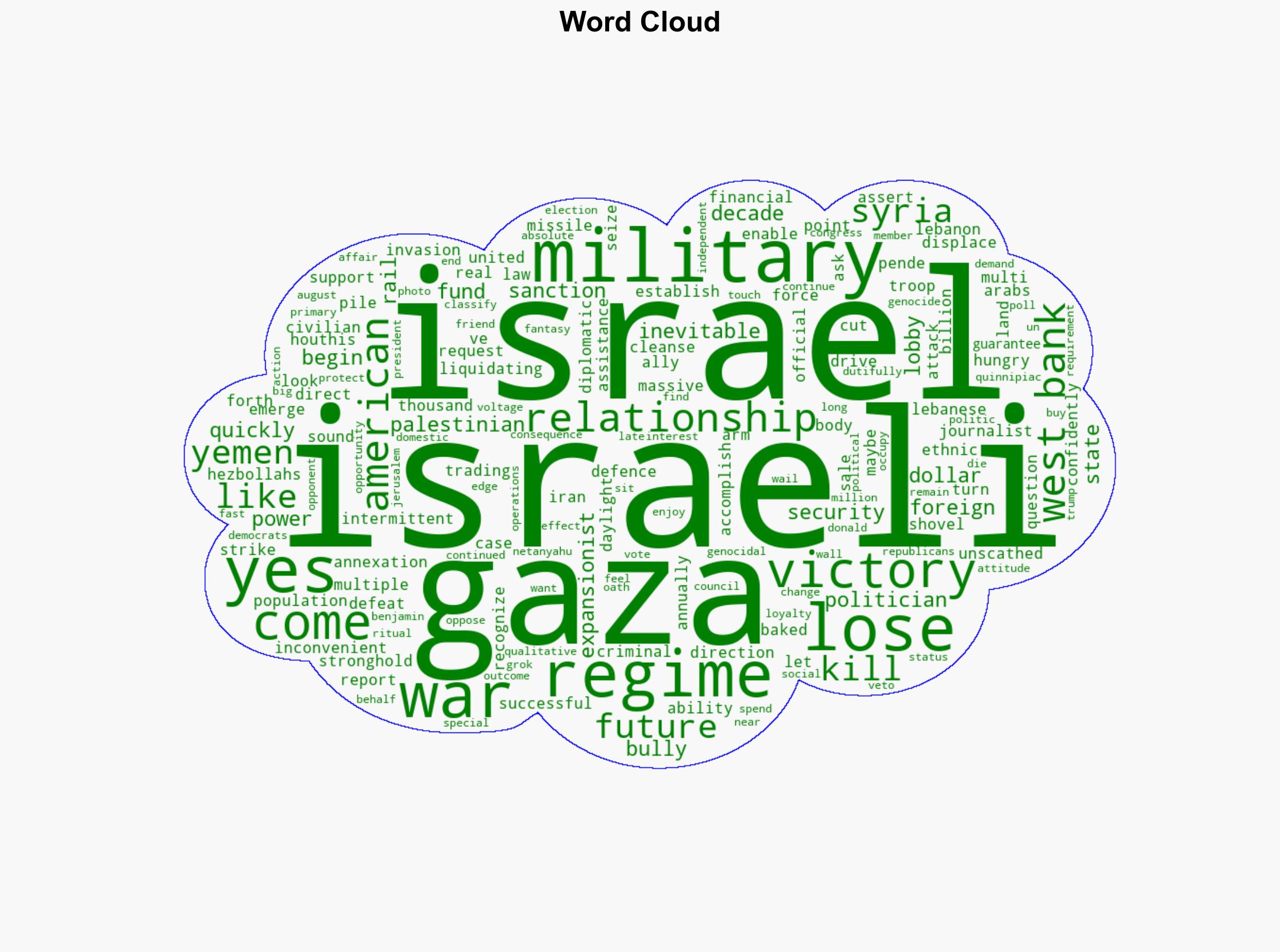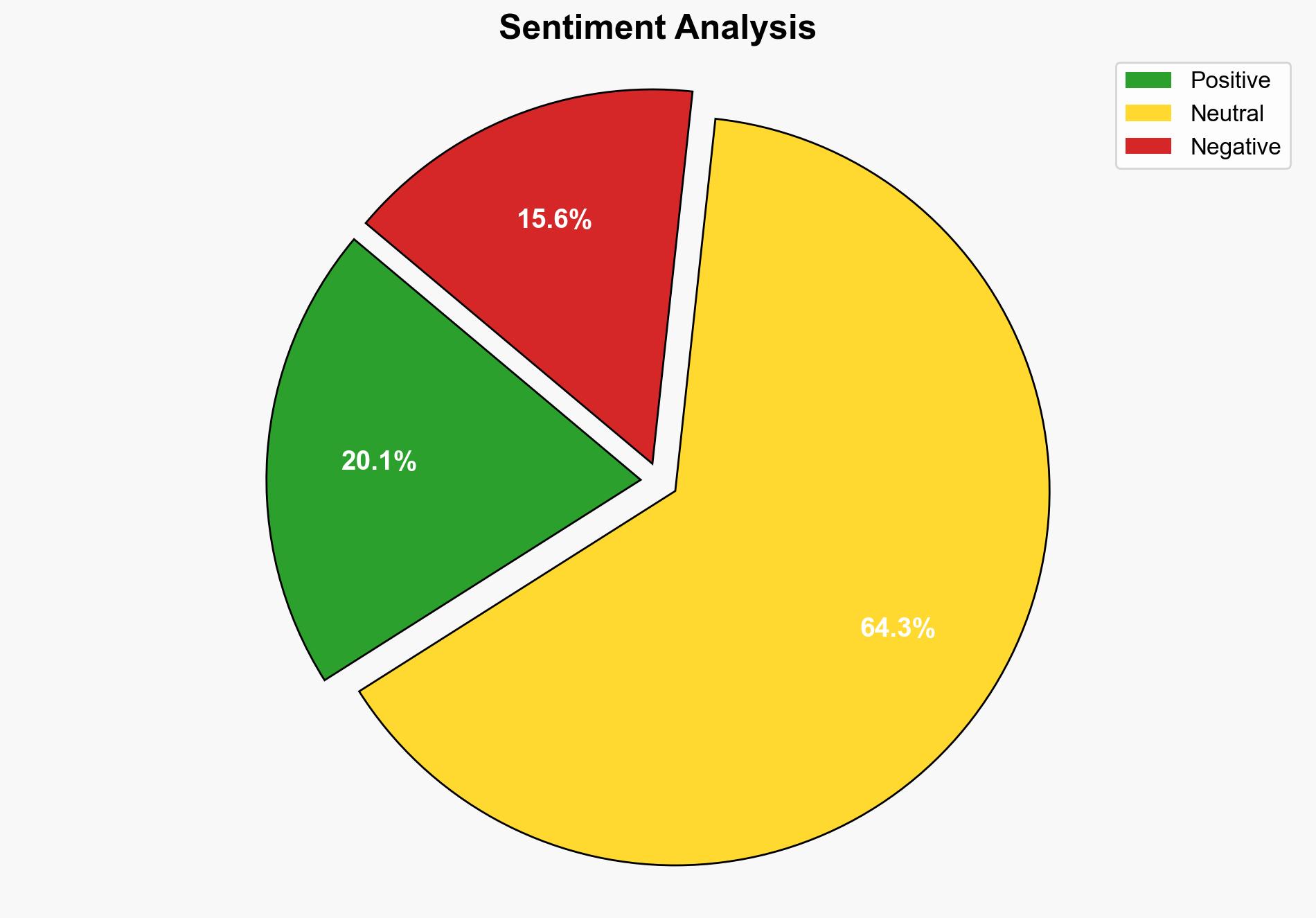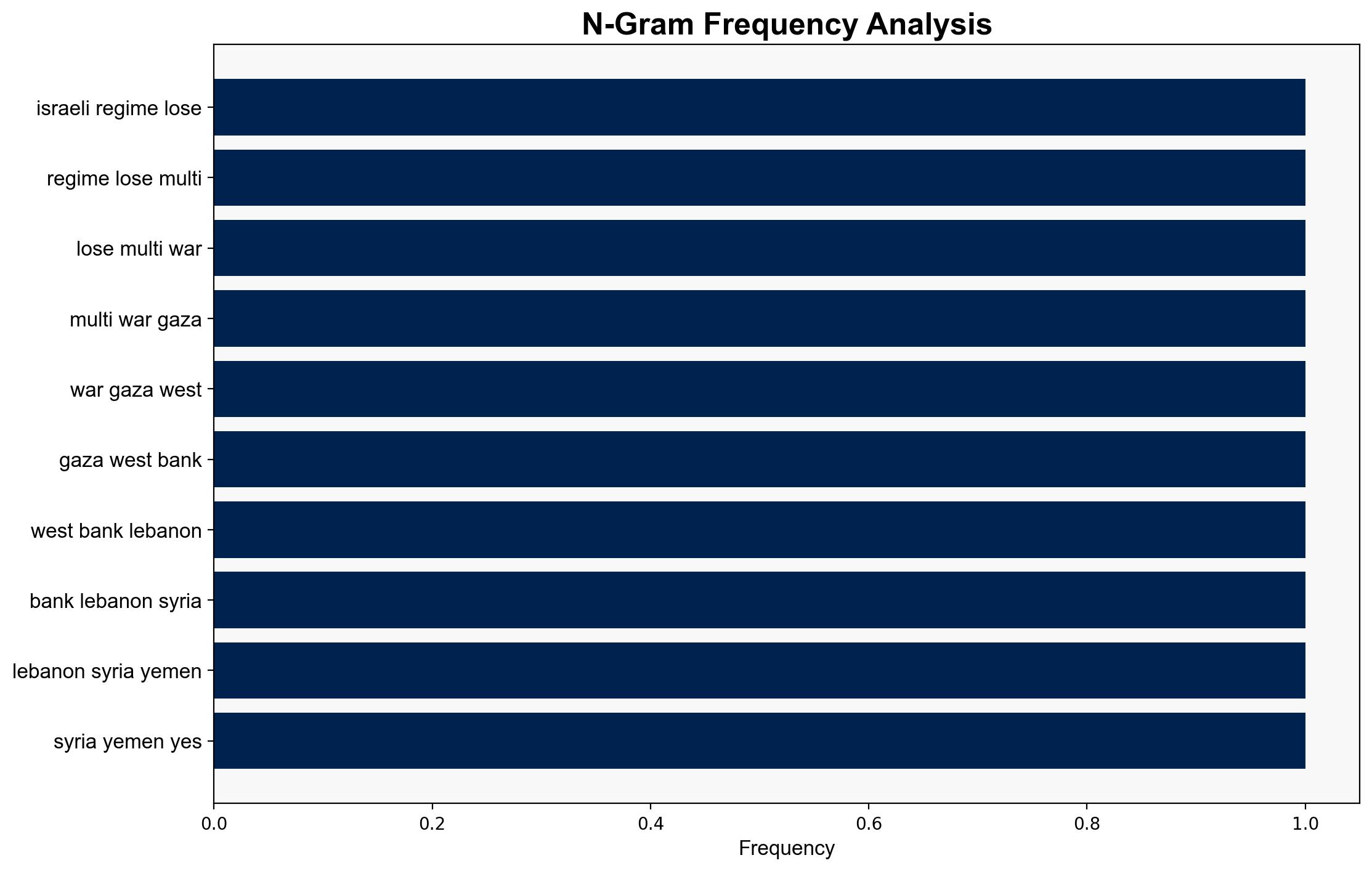The Gaza War Isnt Over But Israel Has Already Lost – Antiwar.com
Published on: 2025-09-03
Intelligence Report: The Gaza War Isn’t Over But Israel Has Already Lost – Antiwar.com
1. BLUF (Bottom Line Up Front)
The strategic judgment indicates a moderate confidence level in the hypothesis that Israel’s geopolitical position is weakening due to shifting international perceptions and internal challenges. The recommended action is to monitor U.S. policy shifts and regional alliances closely, as these could significantly impact Israel’s strategic environment.
2. Competing Hypotheses
Hypothesis 1: Israel is experiencing a strategic defeat due to international isolation and internal dissent, exacerbated by its military actions in Gaza and other regions. This hypothesis suggests that Israel’s actions have led to a loss of support from key allies, particularly the United States, and increased regional hostility.
Hypothesis 2: Despite current challenges, Israel maintains a strong strategic position due to its military capabilities and enduring alliances. This hypothesis posits that while there are temporary setbacks, Israel’s long-term security and geopolitical influence remain intact due to its qualitative military edge and diplomatic ties.
Using ACH 2.0, Hypothesis 1 is better supported due to recent polling data indicating a shift in American public opinion and potential changes in U.S. foreign policy. Additionally, increasing international criticism and potential sanctions suggest a trend towards isolation.
3. Key Assumptions and Red Flags
Assumptions:
– Hypothesis 1 assumes that international opinion significantly influences Israel’s strategic position.
– Hypothesis 2 assumes that military strength and existing alliances will continue to safeguard Israel’s interests.
Red Flags:
– Potential cognitive bias in interpreting polling data as a definitive shift in U.S. policy.
– Lack of concrete evidence on the immediate impact of international criticism on Israel’s strategic decisions.
4. Implications and Strategic Risks
The implications of a weakened Israeli position include increased regional instability and the potential for escalated conflicts with neighboring entities. Economic sanctions could impact Israel’s economy, while cyber threats and psychological warfare could further destabilize the region. A shift in U.S. policy could lead to a realignment of regional alliances, increasing the risk of isolation.
5. Recommendations and Outlook
- Monitor U.S. legislative actions and public opinion trends to anticipate policy shifts.
- Engage in diplomatic efforts to mitigate international criticism and explore new alliances.
- Scenario Projections:
- Best Case: Israel successfully navigates diplomatic challenges, maintaining key alliances and regional stability.
- Worst Case: Increased isolation leads to economic sanctions and escalated regional conflicts.
- Most Likely: Continued diplomatic challenges with gradual adaptation to shifting alliances.
6. Key Individuals and Entities
– Benjamin Netanyahu
– U.S. Congress members
– Hezbollah
– Houthi forces
7. Thematic Tags
national security threats, geopolitical shifts, regional stability, U.S.-Israel relations





